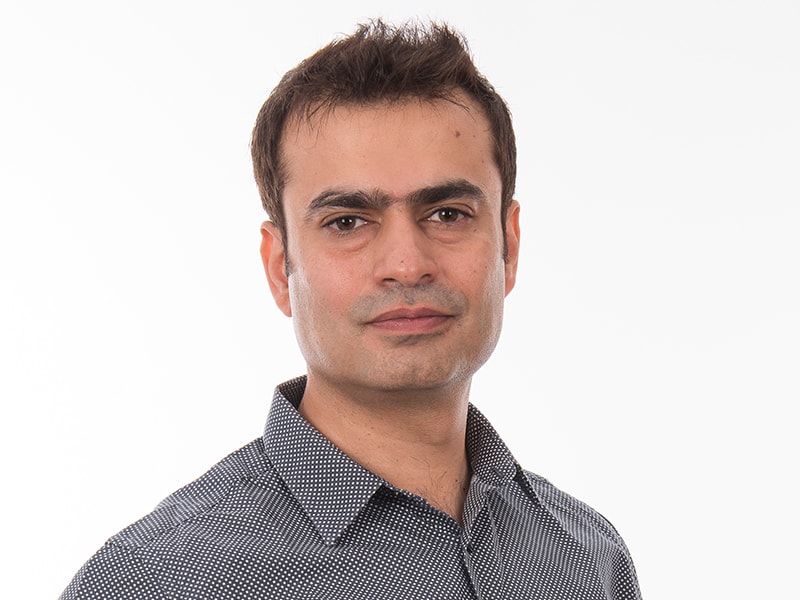
MakeMyTrip-Ibibo deal: 'The merger is about two strong companies coming together'
Founders of both online travel companies believe they have much to gain, and that market penetration overrides quick profitability
The announcement of an all-stock merger between travel portal MakeMyTrip, and its rival, the Ibibo Group, on October 18 signalled the birth of an online travel giant. According to most estimates, the combined entity will be India’s largest online travel company.
MakeMyTrip, in an investor presentation in September, claimed it had a 28 percent share of the Indian online hotel-booking segment (Ibibo Group’s GoIbibo had 21 percent), and a 30 percent share of the online air-ticketing segment; redBus (owned by Ibibo) claims to have more than a 70 percent share of the online bus-ticketing market.
South African internet and media group Naspers and its Chinese investee Tencent, in exchange for their ownership of the Ibibo Group, will receive a 40 percent stake in MakeMyTrip, while 60 percent of it will be owned by MakeMyTrip’s earlier investors, including Chinese travel major Ctrip, who put $180 million into the company earlier this year.
The deal is also the coming together of entrepreneurs: Deep Kalra, co-founder of MakeMyTrip, will continue as group CEO and executive chairman of MakeMyTrip, and co-founder Rajesh Magow will continue as its India CEO. They will be joined by Ashish Kashyap, founder of the Ibibo Group, as co-founder and president. Forbes India spoke to Kalra and Kashyap about what drove the merger, its implications, and their future plans. Edited excerpts:
Q. What were the drivers for the merger?
Kalra: This merger is about two strong companies—in fact, with redBus, three strong companies—coming together. They’re all growing well and none of them is in need of money. That’s very important. Often, you see mergers being done when someone is desperate for cash, and one party is coming from a position of strength. We’ve seen a couple of them recently, especially in the new-age economy. This deal is distinctly different. It is being done from a position of strength for both.
Kashyap: If we look at it through the prism of capturing the 15 percent of the travel market that is online, our vision is not bold enough. When I spoke with Deep and Rajesh, the big point was: How do we bring these under-penetrated accommodation and transportation industries online? And we realised that if we could join forces we could do that.
Q. To bring travellers online, MakeMyTrip and Ibibo have had different approaches. MakeMyTrip has also had an offline presence for this.
Kalra: We’ve had retail offices since 2006. At that point, we noticed that we had air ticketing customers coming from across the country. But when it came to hotel and packages, we had a huge concentration in North India, specifically in the NCR. People wanted to see local brands while buying hotel packages. We have 20 stores out there.
What’s happened over the last few years is different. I don’t think there’s any issue in people buying online anymore. Now these retail centres are a far smaller part of our operations. We’re not going to add any more offices.
Kashyap: The problem is not just about getting the buyer side [the travellers’ side] of the equation correct; it’s also about bringing the supply side online. Using the suppliers’ systems to improve their economics, to ensure their inventories are online, using all the data we produce in a simplistic fashion, that’s the big Herculean task we want to embark upon.
Q. Will all the existing brands within both entities continue to exist?
Kalra: We believe that, on the internet, B2C [business to consumer] brands have inherent value and intrinsic loyalty. We don’t want to lose that. There are also very interesting opportunities in what you can do with internet brands that are within the same space. There are famous case studies around how Expedia acquired Hotels.com, which was in the same space; even recently what Priceline has done with Booking.com and Agoda. Both brands exist. There’s an argument that you want to keep the competition pressure up; it was a fundamental tenet of our deal. We’re actually gaining two strong brands and a couple of other younger brands.

Ashish Kashyap
Q. RedBus already has international operations. Will the merger result in a more international approach from MakeMyTrip?
Kashyap: The first big focus, which is totally untapped by Ibibo and MakeMyTrip, is outbound travel, both from a ticketing and a hotels-and-packages perspective. The first step we need to take is to ensure that you should think of MakeMyTrip or Ibibo when you’re travelling abroad with a complex itinerary.
Q. High marketing expenditures and deep discounts have been a recurring theme in the past year. Do you see some rationalisation on this front?
Kalra: It goes without saying that we’ll be looking at opportunities to rationalise and win off some of these discounts, but not at the cost of market penetration. Market penetration among hotels is of paramount importance. It’s not something that we want to forego or trade off in favour of quicker profitability. If the path to profitability is clear and it comes down to deciding between a quarter here or there, I can tell you we’d go there, but not at the expense of market penetration. Fortunately for us, there’s plenty of cash in the system and access to more if required. By the next earnings’ time, we’ll be able to share some broad guidance on the joint business plan and what to expect.
Q. The combined entity is going to be a fairly large one in this space. Do you see any trouble in terms of the Competition Commission of India (CCI) approval?
Kalra: I don’t think so. While the entity is large, the CCI is concerned with two things. First and most important, pricing power: Are you getting undue pricing power from this consolidation? The answer for us is clearly no. In air ticketing, where we could have the largest share, pricing is done by the airlines. We’re only resellers. At most, we can have a convenience fee. The same applies to hotels and chains.
The other thing that CCI looks at is market share. The size of the travel market in India is about $30 billion. Put together, it’s hard to fathom that even our combined company will have more than a 10 percent of the overall market. We hope the merger goes through. We’re taking the best advice and keeping our fingers crossed.






